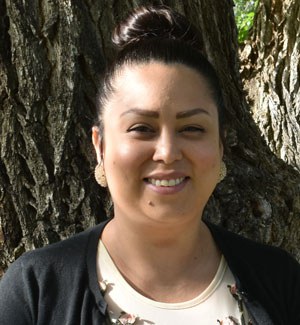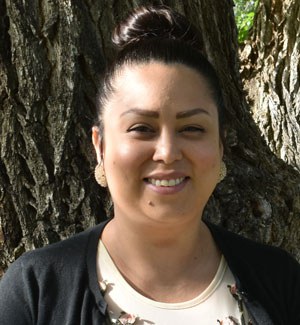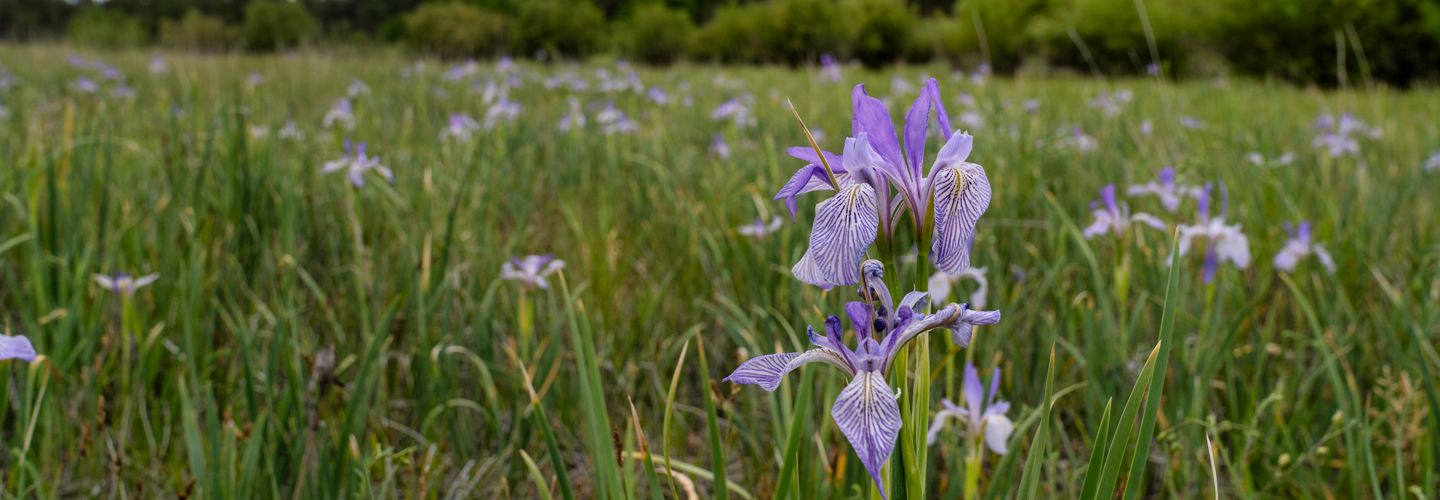Connecting to nature and the land
by Carina Miller
First Foods are the center of our Origin Story. The animal people lived here before humans did. They knew that human beings were coming and would be destructive and naïve. The animal people understood that humans would need their help to survive. When Coyote held a meeting with all animal people about the coming of humans, Deer stepped forward and said he would sacrifice his body so we could eat, make clothes and tools. Next was Elk, then Salmon, then Eel, all offering themselves. The Roots all followed and then the Berries. The sacrifice of these things from nature is recognized in our Longhouses during gatherings as the order in which we serve the first foods on the longhouse tables.
This legend and its values are why we have seasonal food gathering. Every season we hold a feast to honor these foods, and we cannot go out and gather until these feasts have taken place and we have given thanks for the sacrifices they continue to make. We try to teach our children sustainability—we take what we need and always think of the future generations. It was always taught to me that these plants and animals are my relatives and I need to think of them and honor them as living beings. I consider these teachings from our beliefs as a core part of who I am and it impacts every single thing I do in my life.
At the same time, it’s important to recognize that many of the most skilled traditional food gathers are often practicing these teachings from a place of survival. They are surviving the poverty of our community on a Reservation in a food desert. We live in a place with people who have experienced trauma from the moment settlers came to our lands. Our teachings are strong and beautiful and continue to be preserved and practiced, however, the reality of life in our community creates complexity when it comes to our relationship with nature.
I want to share these lessons to establish that I am not a newcomer to these lands and what they have provided for my family and ancestors. The Tribes have been here since time immemorial, living alongside nature. I grew up knowing our people are tied to the water, forests, and animals in every way. As I have grown into adulthood, I have experienced a lot of painful situations that were hard to process as they were happening but are stories I feel need to be told. Today there seems to be a new culture around nature and outdoor recreation and with that a new set of standards for what people perceive as the appropriate equipment, clothing, tools, nutrition, and identity of who can enjoy the outdoors. I believe this unintentionally makes outdoor and recreational experiences inaccessible to many communities, often including mine.
I remember the first time I really experienced the outdoors being inaccessible was in high school. My father cut wood and sold it in and around the Mt. Hood area when I was growing up. I spent a large amount of time in his truck, in the trees of the woods, and playing in people’s yards all around the area. Mt. Hood feels like a second home. My non-Native peers would often come to school on Monday talking about how great the mountain was after snowboarding. I’m half White and have always fit in everywhere, but belonged nowhere, and my high school year’s were a time that I opened myself to every experience. So when I was invited to go snowboarding I was thrilled. However, the conversation took a sharp turn when we started discussing what I needed to go. I didn’t have a board, boots, goggles, a coat, snow pants, or the money for even a day pass. It quickly became clear to me that my version of necessities was not the same as theirs. That was the first time I remember feeling like I did not belong in these places that are sacred to my people. The places we were intentionally removed from because of the norms set by White communities around outdoor recreation.
Fast forward to two years ago, I was invited to go on a rafting trip with a friend from an environmental organization and other like-minded people. I have been rafting on the Deschutes River three times, and once on the McKenzie River in college. Three of the four times it was through a program because rafting was not something I was able to afford as an individual. In Warm Springs there have been rafting companies operated by Tribal Members, however the clients are tourists and visitors seeking time in the river adjacent to the Reservation. Those businesses have not catered to Native people who live on this reservation. Hold that thought.
I was fortunate enough to grow up knowing my grandmother and great-grandmother. I felt like, maybe because I was half White, they went out of their way sometimes to make sure I knew I belonged, to these lands, rivers, longhouses, and lifeways. I remember riding with them on drives to the Columbia River and the towns along it. I remember hearing stories about what these places meant to us, where to find plants, first foods, and culturally significant areas. They would reinforce that I belonged here and talk about what life was like before colonization.
They also told me the stories about places to avoid, about the very real danger of White supremacy and racism and that often times the rural areas are the least safe for us. They would share stories about the restaurants and people and places that would refuse to serve them. Or, the places that had signs hanging that said Natives were not allowed or de-humanizing Natives. I was taught this is where I come from, but there will always be people trying to sever our connections. There will be many people who will unintentionally perpetuate these things because their culture and heritage is rooted in colonization and their roots were not possible without the genocide of Native people.
After my great-grandmother passed away, my grandmother would often talk about being placed in a home. She would always talk about Maupin, and would tell stories about the hills and her horse from when she was a girl. An only child, she would make it sound like her horse, dogs and nature were the best and only friends she needed. Even today when I am really missing her I take long drives down the same roads to the same towns and imagine she is just on the other side of the hills, happy, riding horses.
So, I was thinking about all of this as I got in my car early one Saturday morning and made the drive from Warm Springs to Maupin to meet up with this group of all White people to raft. I had been rafting once before, and, just like the first time, I scoured the crowds of eager faces getting organized and saw very few other people of color. Certainly I did not recognize one other Native person. I had a bad attitude because I knew what was coming.
As the day went on I kept reminding myself these were all wonderful people who did great work and it wasn’t their fault they didn’t see or feel things the way I did. I wore my Dollar Tree sunglasses, old U of O shorts, a t-shirt, and sandals I purchased at Goodwill. There was a point during our trip that the people in my raft were taking inventory of what they had with them: $100 Ray-Bans, $120 Columbia gear, etc. By this point in my life I’d become used to these conversations in social settings, and, although I felt anger, I knew it was pointless to try and share my perspective and said nothing.
I had an uncle who was a fisherman we lost to the Columbia River. I recently had a cousin my age drown in the Deschutes River. I have always had an immense amount of respect and a healthy dose of fear when it comes to water, and I knew this particular rafting trip had a small waterfall that often flipped rafts. As we began coming up to the stretch before that drop, our raft noticed another boat in the water. It was a small blow up raft containing two men of color. Both had on swim trunks, t-shirts, and Converse sneakers. They had no paddles and their raft looked like a pool raft. I remember seeing them and feeling joy for the first time that day that at least two other people of color were enjoying this river. Our group of rafters had another take. Immediately another women in our boat said they were not equipped with the proper things and demanded we paddle over to tell them to get out. GET OUT OF THE WATER.
We did as the woman, on our raft, commanded. The two men did not seem to speak English and it took several people angrily explaining that they were in danger and that they needed to get out of the river before the men seemed to understand. It was all around uncomfortable for me. This trip was to build relationships, network, and meet people working for the same policy goals and values on a bigger scale to protect our earth. Instead, the trip sucked. We were the right kind of people, in the right kind of boat, with the right kind of gear, and it was ok for us to go over and get flipped and put ourselves in danger, but these two men were not.
Maybe it was because I was still mourning the loss of my grandmother; maybe it was because I was mourning the reality that these activities did not exist for our people; maybe it was that tricky anger that is really sadness because the severing of our relationship to nature had been so effective and other people have been able to move in so quickly, take over, and experience everything we have lost in ways we never will, even though we are still here. Or, maybe it’s fair to be pissed at the amount of White privilege in our raft that day and the audacity of a group of people from Portland feeling entitled to literally kick out of the river the only people of color because they did not meet their safety standards. I made them paddle to the shore and let me out, saying I didn’t want to go on the drop. Really I was done being in a situation in which there was no way I was going to get through to these people about how offensive what had just taken place was. I also got out because it’s just so exhausting feeling these things and never being able to really enjoy any outdoor recreation because the same situation always happens.
I am sharing this not to shame or make anyone feel like they don’t belong, but instead to maybe peel away a layer or two and uncover the fact that people of color labor on lands, but recreation is not made accessible to us. I hope that any discomfort felt by anyone about my experiences can help people realize that there is a lot of work to be done when it comes to understanding the culture we have created around outdoor recreation and classism, racism, sexism, and privilege. I know I am not the only one identifying these intersecting issues, and there are organizations out there trying to reconnect our communities, like Outward Bound and Indigenous Women Hike. I hope that when non-Indigenous people are hiking, biking, rafting, climbing, doing yoga, or whatever, you realize you are standing on the bones of people who have been here from time immemorial and whose descendants might not have the time, money, or resources to experience nature the way you do, and that it is in fact a privilege you hold.
I am thankful to have been asked to submit a blog post and will continue to put myself into these spaces, to build relationships, and to try to re-connect. My hope is that these spaces can be more accessible to everyone and one day my granddaughters will know to go to the mountains and forests to feel me after I am gone.
Learn more:
- About the Confederated Tribes of Warm Springs
- Land Trust blog post on the Indigenous Peoples of Central Oregon
 About Carina Miller
About Carina Miller
Carina Miller grew up in Central Oregon on the Warm Springs Indian Reservation. She is an enrolled member of the Confederated Tribes of Warm Springs and holds a B.S. in Ethnic Studies from the University of Oregon. She currently works at the nonprofit Warm Springs Community Action Team. Carina was formerly an Agency district representative on the 27th Tribal Council of Warm Springs, the Co-Chair for the Affiliated Tribes of Northwest Indians Energy Committee, the Chair of the Native American Caucus for the Oregon Democrats, and is a Columbia River Gorge Commissioner. Her biggest accomplishment is becoming a mother and being able to raise her son, Waluxpykee Barkley, in Warm Springs.

